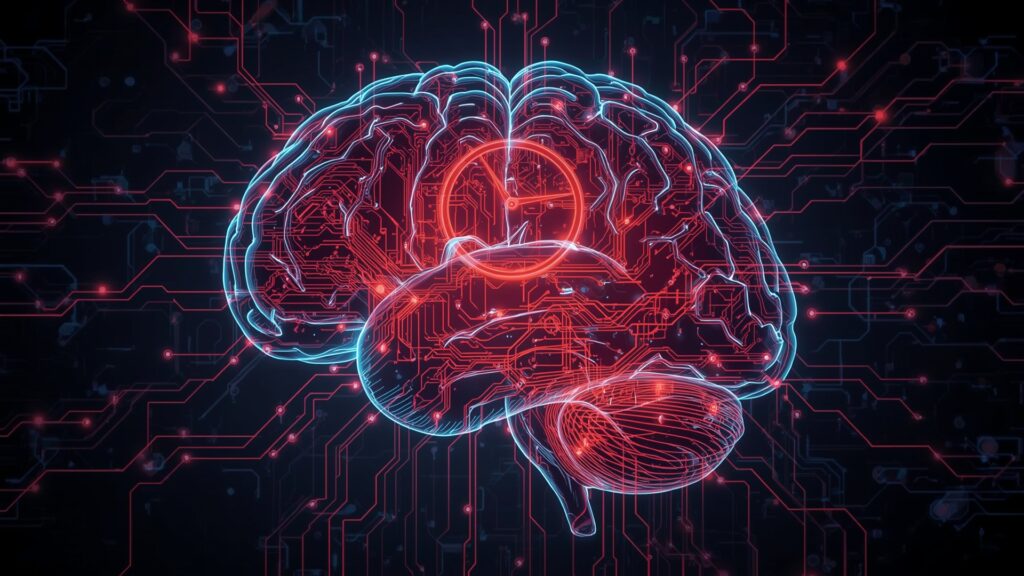Unraveling the Enigma of Subjective Time
Time, a fundamental dimension of our existence, often feels like a constant, unyielding force. Yet, our personal experience of it is anything but uniform. From moments that stretch into eternity to years that vanish in a blink, our perception of time is a complex and often perplexing phenomenon. This article delves into the fascinating world of time perception, exploring the psychological and neurological mechanisms that govern our subjective sense of duration. We will uncover why time can feel fast, slow, or even stuck, and how various factors influence this enigmatic aspect of human consciousness.
The Elusive Nature of Time
Our understanding of time is often rooted in objective measurements: the ticking of a clock, the rotation of the Earth, the progression of seasons. However, our internal clock operates on a different rhythm, one that is deeply personal and highly susceptible to a myriad of influences. This subjective experience of time, known as chronoception, is not a simple linear progression but a dynamic interplay of cognitive, emotional, and physiological factors. Consequently, the same objective duration can be perceived vastly differently by individuals, or even by the same individual under varying circumstances.

The Brain’s Internal Clocks: More Than Just Ticking

Unlike a mechanical clock, our brains do not possess a single, centralized timekeeping mechanism. Instead, time perception is a distributed process, involving a complex network of brain regions and neural oscillations. Research suggests that various brain areas, including the cerebellum, basal ganglia, and prefrontal cortex, play crucial roles in processing temporal information. These regions work in concert to create our subjective sense of duration. For instance, the suprachiasmatic nucleus (SCN) in the hypothalamus acts as our master circadian clock, regulating our sleep-wake cycles and influencing our perception of longer time intervals. However, for shorter durations, other neural circuits are at play.
Neural Oscillations and Temporal Processing
One prominent theory posits that our brains estimate time through the rhythmic firing of neurons, known as neural oscillations or brainwaves. Different frequencies of these oscillations may correspond to different temporal scales. For example, gamma waves (high-frequency oscillations) are often associated with conscious perception and attention, potentially influencing how we perceive brief moments. Conversely, slower oscillations might be involved in tracking longer durations. The precise interplay of these neural rhythms allows us to differentiate between seconds, minutes, and hours, even without external cues.
The Role of Dopamine in Time Perception
Dopamine, a neurotransmitter associated with reward and motivation, also plays a significant role in modulating our sense of time. Studies have shown that increased dopamine levels can lead to an overestimation of time, making it feel as though time is passing more slowly. This phenomenon is often observed in situations of high arousal or excitement, where dopamine release is elevated. Conversely, lower dopamine levels can result in an underestimation of time, making it feel like time is speeding up. This intricate relationship highlights how our emotional and motivational states directly impact our internal clock.
Why Time Feels Fast: The Role of Novelty and Routine

“Time flies when you’re having fun” is a common adage, and it holds a significant truth in the realm of time perception. Our brains are wired to pay more attention to novel and stimulating experiences. When we are engaged in new activities, learning new skills, or experiencing intense emotions, our brains process a greater amount of information. This increased information density can lead to a subjective compression of time, making it feel as though the duration was shorter than it objectively was. Conversely, routine and predictable activities, which require less cognitive processing, tend to make time feel as if it’s dragging.
The “Holiday Paradox”
This phenomenon is often referred to as the “holiday paradox.” During a vacation, filled with new sights, sounds, and experiences, time seems to fly by. However, when we look back at the vacation, it feels like it lasted a long time because of the abundance of new memories formed. This retrospective perception of time is influenced by the richness of our memories. The more unique and memorable events we experience, the more expansive that period feels in retrospect. Therefore, to make time feel longer in memory, seek out novel experiences.
The Aging Effect: A Shrinking Proportion

As we age, many people report that time seems to accelerate. One prominent theory for this is the “proportional theory.” As we get older, each unit of time (e.g., a year) becomes a smaller proportion of our total lived experience. For a 10-year-old, a year represents 10% of their life, a significant duration. For a 50-year-old, that same year is only 2% of their life, making it feel comparatively shorter. Additionally, as we age, our lives often become more routine, with fewer novel experiences, further contributing to the perception of time speeding up. This suggests that actively seeking new experiences throughout life can help to counteract this accelerating perception.
Why Time Feels Slow or Stuck: The Impact of Emotion and Threat

Just as novelty can make time fly, intense emotional states, particularly those involving fear or boredom, can cause time to drag or even seem to halt. This phenomenon is often observed in high-stakes situations, such as accidents or emergencies, where individuals report experiencing events in slow motion. This is not because the brain literally speeds up its processing, but rather due to an increased focus and the encoding of a richer, more detailed memory of the event. The brain prioritizes survival, and in moments of danger, it allocates more resources to processing sensory information, leading to a subjective expansion of time.
The Role of Boredom and Waiting
Conversely, boredom can make time feel excruciatingly slow. When we are disengaged, unstimulated, or waiting, our attention is often drawn to the passage of time itself. The lack of novel stimuli means there is less information for the brain to process, and our internal clock, in a sense, becomes more salient. This can lead to a heightened awareness of each passing second, making minutes feel like hours. This is why waiting in line or enduring a dull lecture can feel interminable.
Psychological Conditions and Altered Time Perception
Certain psychological conditions can also significantly alter time perception. Individuals suffering from depression, for instance, often report a feeling of time dragging or being stuck, reflecting a general lack of engagement and motivation. Conversely, those experiencing anxiety might perceive time as speeding up, driven by a sense of urgency or impending doom. These examples highlight the profound connection between our emotional well-being and our subjective experience of time.
How to Influence Your Time Perception: Practical Strategies

While our perception of time is largely subconscious, there are conscious strategies we can employ to influence how we experience its passage. Understanding the underlying mechanisms allows us to manipulate our internal clock, making time feel more expansive or more compressed depending on our goals. The key lies in managing our attention, emotional states, and engagement with the world around us.
Embrace Novelty and Learning
To make time feel richer and more memorable, actively seek out new experiences. Learn a new skill, visit a new place, or engage in a hobby that challenges you. Novelty increases the amount of information our brains process, leading to a more vivid and expansive retrospective perception of time. This doesn’t mean every moment needs to be a grand adventure; even small changes to your routine can introduce enough novelty to make a difference. For example, taking a different route to work or trying a new recipe can subtly alter your temporal experience.
Practice Mindfulness and Presence
Mindfulness, the practice of being fully present and aware of the current moment, can significantly impact time perception. When we are mindful, we are less likely to be caught up in thoughts about the past or worries about the future. This heightened awareness of the present can make moments feel more extended and meaningful. Techniques such as meditation, deep breathing exercises, or simply paying close attention to sensory details in your environment can cultivate mindfulness. By anchoring yourself in the present, you can savor moments and prevent them from slipping away unnoticed.
Manage Your Emotional State
Our emotions are powerful modulators of time perception. To avoid the dragging sensation of boredom, seek out activities that genuinely engage and excite you. Conversely, if you find time speeding by too quickly, perhaps during a period of intense work, consciously schedule breaks and moments of disengagement. Engaging in activities that evoke positive emotions, such as joy, curiosity, or gratitude, can also contribute to a more positive and expansive temporal experience. Understanding your emotional triggers and how they affect your perception of time can empower you to better manage your subjective experience.
Conclusion: Mastering Your Internal Clock
Time perception, far from being a fixed and objective reality, is a dynamic and deeply personal experience shaped by the intricate workings of our brains, our emotional states, and our engagement with the world. Understanding the mechanisms behind why time feels fast, slow, or stuck empowers us to become more conscious architects of our temporal experience. By embracing novelty, practicing mindfulness, and managing our emotional states, we can cultivate a richer, more fulfilling relationship with time.
Maybe you also like:
Follow me on:
For more updates, visit: flashpointnews.com.br



